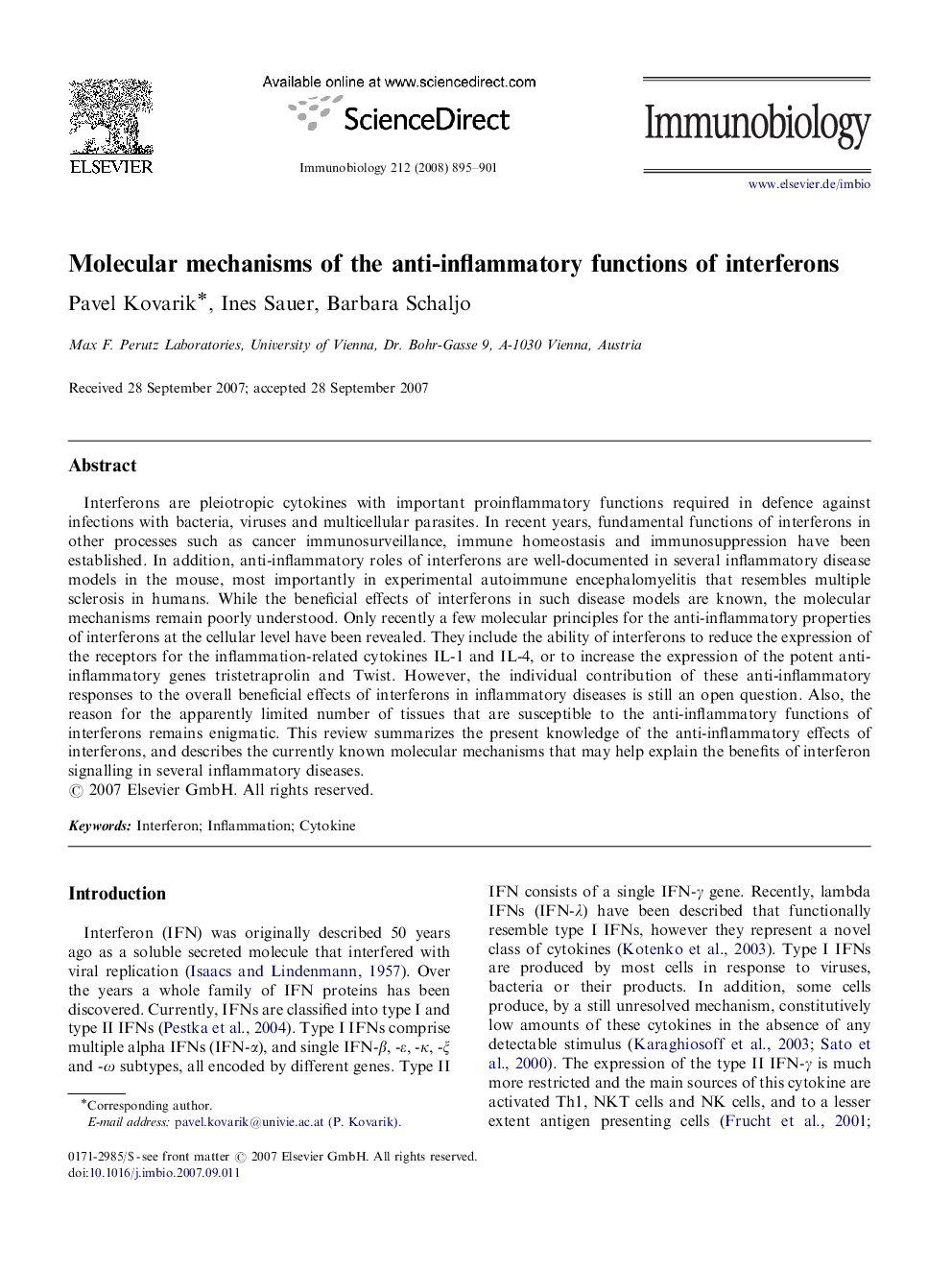| Article ID | Journal | Published Year | Pages | File Type |
|---|---|---|---|---|
| 2183926 | Immunobiology | 2008 | 7 Pages |
Interferons are pleiotropic cytokines with important proinflammatory functions required in defence against infections with bacteria, viruses and multicellular parasites. In recent years, fundamental functions of interferons in other processes such as cancer immunosurveillance, immune homeostasis and immunosuppression have been established. In addition, anti-inflammatory roles of interferons are well-documented in several inflammatory disease models in the mouse, most importantly in experimental autoimmune encephalomyelitis that resembles multiple sclerosis in humans. While the beneficial effects of interferons in such disease models are known, the molecular mechanisms remain poorly understood. Only recently a few molecular principles for the anti-inflammatory properties of interferons at the cellular level have been revealed. They include the ability of interferons to reduce the expression of the receptors for the inflammation-related cytokines IL-1 and IL-4, or to increase the expression of the potent anti-inflammatory genes tristetraprolin and Twist. However, the individual contribution of these anti-inflammatory responses to the overall beneficial effects of interferons in inflammatory diseases is still an open question. Also, the reason for the apparently limited number of tissues that are susceptible to the anti-inflammatory functions of interferons remains enigmatic. This review summarizes the present knowledge of the anti-inflammatory effects of interferons, and describes the currently known molecular mechanisms that may help explain the benefits of interferon signalling in several inflammatory diseases.
